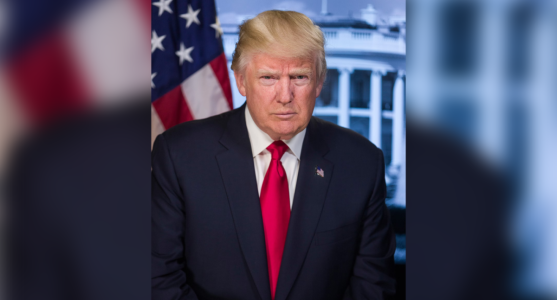World leaders react with surprise and optimism to shocking election outcome
By
- Replies 137
As the world watched with bated breath, the results of the US election rolled in, culminating in a victory that left many astonished.
Against all odds, he secured his place again in the White House, prompting a cascade of reactions from leaders across the globe.
The responses ranged from warm congratulations to expressions of concern, reflecting the diverse perspectives on his leadership and the implications of his win for international relations.
Israeli Prime Minister Benjamin Netanyahu was among the first to extend his congratulations, heralding Donald Trump's victory as 'history's greatest comeback.'
Netanyahu's message underscored the strong alliance between Israel and the United States, viewing Trump's return as a new beginning for America and a reaffirmation of the bond between the two nations.
'This is a huge victory! In true friendship, yours, Benjamin and Sara Netanyahu,' he exclaimed, setting a tone of optimism for the future of US-Israeli relations.
In contrast, the situation in Eastern Europe elicited a more cautious response.
Ukrainian President Volodymyr Zelenskyy congratulated Trump, recalling their previous discussions on strategic partnership and expressing hope for continued cooperation.
Zelenskyy emphasised Ukraine's interest in developing mutually beneficial political and economic ties.
He appreciated Trump's 'peace through strength' approach, which he believed could bring just peace to Ukraine.
However, the ongoing conflict and Trump's potential influence on the Ukraine war remained uncertain.
The reaction from Russia was notably reserved. Kremlin spokesperson Dmitry Peskov, ahead of the election results, had labelled the US as an 'unfriendly' country, involved both directly and indirectly in the war against Russia.
While Peskov acknowledged Trump's campaign statements about ending wars, he also cautioned that such statements could change once in office.
The Kremlin's stance was clear: relations with the US were at a historic low, and it would be up to the new US leadership to initiate change.
Under, Australian Prime Minister Anthony Albanese congratulated Trump, emphasising the enduring friendship and alliance between Australians and Americans.
Albanese expressed confidence that the partnership would remain strong in the future.
Federal Opposition Leader Peter Dutton echoed this sentiment, highlighting the shared patriotism and pragmatism that unite the two nations.
Dutton also pointed to the potential of the AUKUS alliance to drive defence and industrial and economic opportunities.
However, not all reactions were positive. Greens leader Adam Bandt refrained from congratulating Trump, expressed concern over the election outcome, and urged continued activism for people and the planet.
Bandt's message was one of resilience in the face of adversity, a call to action against hate and division.
European leaders also weighed in on Trump's victory. French President Emmanuel Macron expressed readiness to work together.
At the same time, European Commission President Ursula von der Leyen looked forward to a continued partnership that benefits both the EU and the US.
NATO Secretary-General Mark Rutte anticipated collaboration to advance peace through strength, acknowledging the alliance's global challenges.
Across the English Channel, UK Prime Minister Keir Starmer congratulated Trump, reaffirming the close alliance between the UK and the US.
In stark contrast, British MP Ed Davey of the Liberal Democrats described the election as a 'dark, dark day,' voicing concerns over Trump's impact on the rule of law, human rights, international trade, climate action, and global security.
Davey emphasised the need for the UK to strengthen ties with Europe to mitigate potential damage from Trump's policies.
 What do you make of the mixed reactions to Trump's victory, from optimism to concern? How should countries handle these different views in their foreign policy? Let us know in the comments below.
What do you make of the mixed reactions to Trump's victory, from optimism to concern? How should countries handle these different views in their foreign policy? Let us know in the comments below.
Against all odds, he secured his place again in the White House, prompting a cascade of reactions from leaders across the globe.
The responses ranged from warm congratulations to expressions of concern, reflecting the diverse perspectives on his leadership and the implications of his win for international relations.
Israeli Prime Minister Benjamin Netanyahu was among the first to extend his congratulations, heralding Donald Trump's victory as 'history's greatest comeback.'
Netanyahu's message underscored the strong alliance between Israel and the United States, viewing Trump's return as a new beginning for America and a reaffirmation of the bond between the two nations.
'This is a huge victory! In true friendship, yours, Benjamin and Sara Netanyahu,' he exclaimed, setting a tone of optimism for the future of US-Israeli relations.
In contrast, the situation in Eastern Europe elicited a more cautious response.
Ukrainian President Volodymyr Zelenskyy congratulated Trump, recalling their previous discussions on strategic partnership and expressing hope for continued cooperation.
Zelenskyy emphasised Ukraine's interest in developing mutually beneficial political and economic ties.
He appreciated Trump's 'peace through strength' approach, which he believed could bring just peace to Ukraine.
However, the ongoing conflict and Trump's potential influence on the Ukraine war remained uncertain.
The reaction from Russia was notably reserved. Kremlin spokesperson Dmitry Peskov, ahead of the election results, had labelled the US as an 'unfriendly' country, involved both directly and indirectly in the war against Russia.
While Peskov acknowledged Trump's campaign statements about ending wars, he also cautioned that such statements could change once in office.
The Kremlin's stance was clear: relations with the US were at a historic low, and it would be up to the new US leadership to initiate change.
Under, Australian Prime Minister Anthony Albanese congratulated Trump, emphasising the enduring friendship and alliance between Australians and Americans.
Albanese expressed confidence that the partnership would remain strong in the future.
Federal Opposition Leader Peter Dutton echoed this sentiment, highlighting the shared patriotism and pragmatism that unite the two nations.
Dutton also pointed to the potential of the AUKUS alliance to drive defence and industrial and economic opportunities.
However, not all reactions were positive. Greens leader Adam Bandt refrained from congratulating Trump, expressed concern over the election outcome, and urged continued activism for people and the planet.
Bandt's message was one of resilience in the face of adversity, a call to action against hate and division.
European leaders also weighed in on Trump's victory. French President Emmanuel Macron expressed readiness to work together.
At the same time, European Commission President Ursula von der Leyen looked forward to a continued partnership that benefits both the EU and the US.
NATO Secretary-General Mark Rutte anticipated collaboration to advance peace through strength, acknowledging the alliance's global challenges.
Across the English Channel, UK Prime Minister Keir Starmer congratulated Trump, reaffirming the close alliance between the UK and the US.
In stark contrast, British MP Ed Davey of the Liberal Democrats described the election as a 'dark, dark day,' voicing concerns over Trump's impact on the rule of law, human rights, international trade, climate action, and global security.
Davey emphasised the need for the UK to strengthen ties with Europe to mitigate potential damage from Trump's policies.
Key Takeaways
- Ukrainian President Volodymyr Zelenskyy and other international leaders are interested in cooperation with the United States under Trump's leadership.
- Relations between Russia and the US remain strained and uncertain, with Russian officials making no immediate comment on the fictional election result.
- Australian politicians are expressing their sentiments toward the alliance with the United States under what appears to be a Trump presidency, with varied responses from supporting to condemning it.









